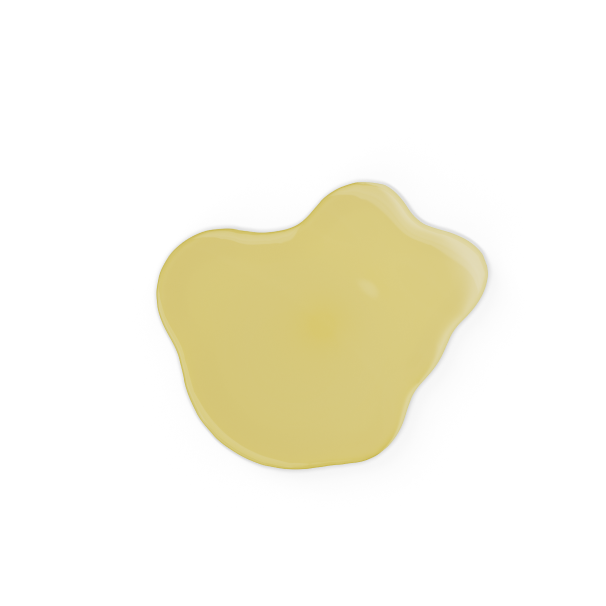Our mission is to give the world an oil change.



It’s the first thing that hits the pan. It’s the last thing drizzled over a plate. It’s what lets us cook our favorite dishes, but it’s also what lets us savor them. Roasting, sautéing, stir-frying, dressing, drizzling. Cooking oil is as essential to cooking as cooking itself.
So for something that’s so important, why can’t somebody make an oil that’s better for us? An oil that doesn’t contribute to increasing rates of disease or massive environmental impact.
At Zero Acre Farms™, we think it’s time cooking oil lived up to its full potential. That’s why we’re introducing Cultured Oil, made by the ancient technique of fermentation. It’s oil that cooks better, tastes better, feels better, and does better for the planet.
We’ve obsessed over the finer details about smoke point, omega-6 linoleic acid and monounsaturated fats, so you don’t even have to think twice about it. Better for you, the planet, and everything that’s on your plate.
Cultured Oil is cooking oil made by fermentation, resulting in high levels of healthy fats, a small environmental footprint, a clean taste, and a high smoke point!
Fermentation describes the process of microorganisms (or "cultures") consuming natural sugars and converting those sugars into entirely new foods. Just as there are sourdough and wine cultures, there are also oil cultures. An oil culture converts sugar into the healthy delicious fats that make up Cultured Oil.
Cultured Oil is primarily monounsaturated fat, the heart-healthy and heat-stable fat also found in olive and avocados.
In every serving of Cultured Oil (1 Tbsp - 14 grams), there are about 13 grams of monounsaturated fat, 0.5 grams of saturated fat, and 0.4 grams of polyunsaturated fat.
Olive oils and avocado oils contain between 55-83% monounsaturated fat, and up to 21% polyunsaturated fat. Cultured Oil contains over 90% monounsaturated fat and less than 4% polyunsaturated fat.
The healthy fats in Cultured Oil are a result of microbial communities fermenting sugars into oil.
Non-GMO sugar is fed to a community of microorganisms, also known as a "culture," that eat the sugar and convert it into healthy fats –– primarily monounsaturated fat, which is liquid at room temperature and therefore considered an "oil". After a few days of fermenting sugar into oil, the culture is pressed to release the oil, like pressing oil from an olive.
Every bottle contains two ingredients: Cultured Oil and Mixed Tocopherols (Vitamin E).
Every bottle contains Cultured Oil and natural antioxidants, including alpha-tocopherol, beta-tocopherol, gamma-tocopherol, and delta-tocopherol, collectively called “mixed tocopherols,” a form of vitamin E. Mixed tocopherols are found naturally in many foods, including olive oil, nuts, seeds, and spinach and provide protection against oxidation (rancidity).
Read more about how fermentation is responsible for many of our favorite foods, including Cultured Oil.
Cultured Oil is sky high in heart-healthy and heat-stable monounsaturated fat. Every batch of Cultured Oil is slightly different, but typically Cultured Oil contains 90-94% monounsaturated fat, and less than 4% polyunsaturated (including less than 3% omega-6 linoleic acid) and saturated fat. Per 14 gram (1 tablespoon) serving of Cultured Oil, that translates to about 13g monounsaturated fat, 0.5g saturated fat, and 0.4g polyunsaturated fat.
Cultured Oil is better for people, for the planet, and for our taste buds. Here are the highlights:
Health benefits of Cultured Oil:
- Cultured Oil contains more than 90% heart-healthy and heat-stable monounsaturated fat, even more than olive oil and avocado oil.
- Cultured Oil contains less of the fats that have been linked to inflammation, heart disease, and poor health, with less than 3% omega-6 linoleic acid. That’s up to 10x less than even olive oil or avocado oil.
- Cultured Oil has a high smoke point and high oxidative stability, meaning it holds up to heat and storage, and doesn’t easily break down into compounds that harm our health.
- Cultured oil is vegan, keto, kosher, Whole30 Approved®, gluten-free, soy-free, nut-free, allergen-free, pesticide-free, glyphosate-free, GMO-free, and deforestation-free.
Environmental benefits of Cultured Oil:
- 85% less land use than canola oil
- 86% less greenhouse gas emissions than soybean oil
- 99% less water consumption than olive oil
- Comes in an infinitely-recyclable aluminum bottle
Culinary benefits of Cultured Oil:
- A delicious, clean taste and high smoke point (485ºF) make Cultured Oil a versatile upgrade for all-purpose cooking duties.
- Use Cultured Oil for everything — deep fry, stir fry, roast, bake, sauté, dress, spray, brush, and drizzle.
- Cultured Oil is liquid at room temperature and stays liquid in the fridge, making it great for dressings and marinades.
- Cultured Oil has a high smoke point and high oxidative stability, meaning it holds up to heat and storage, and doesn’t easily break down into compounds that harm our health.
Cultured Oil contains natural antioxidants, including alpha-tocopherol, beta-tocopherol, gamma-tocopherol, and delta-tocopherol, collectively called “mixed tocopherols,” a form of vitamin E. Mixed tocopherols are found naturally in many foods, including olive oil, nuts, seeds, and spinach and provide protection against oxidation (rancidity).
As part of our mission to improve the health of not only people, but also the planet, we use 100% recyclable aluminum packaging, in addition to a 100% recyclable kraft shipping box.
Aluminum is lighter and more sustainable than glass and infinitely recyclable. Infinitely recyclable refers to materials that can be recycled an infinite number of times without the quality of the material degrading. While the phrase “recyclable” is attached to countless products these days, that doesn’t mean they can all be recycled forever.
Today, about 75% of all aluminum produced in history, nearly a billion tons, is still in use. Studies find that consumers are also about 70% more likely to recycle aluminum than glass or plastic. And because aluminum is lighter than glass, it is more environmentally friendly in transportation.
Unlike glass (even dark green or amber-tinted bottles), aluminum packaging also completely blocks UV light, making the oil less susceptible to oxidation, rancidity, and waste. It’s also less susceptible to breaking or cracking than glass, further reducing waste.
Currently, our bottles are 99.7% aluminum and contain a plastic pour spout and tip. We are working to replace these parts with aluminum as well.
For the last time, Steve, no.
We’re hiring!
Join our team.